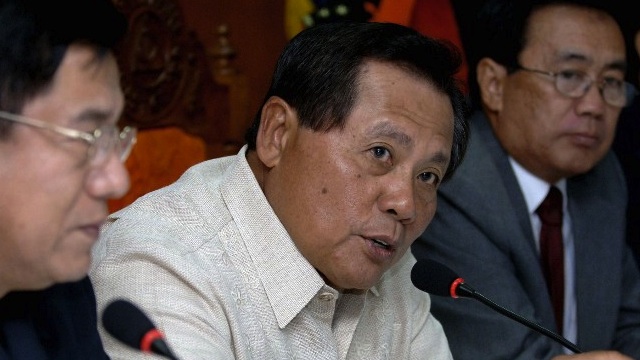SUMMARY
This is AI generated summarization, which may have errors. For context, always refer to the full article.

This is a developing story. Please refresh this page for updates.
MANILA, Philippines (2nd UPDATE) – Retired Philippine National Police chief Leandro Mendoza, died early Monday morning, October 7, a former aide confirmed to Rappler. He was 67.
Mendoza suffered a stroke in March 2012, on the eve of his birthday, at his resort in San Juan, Batangas, according to the former aide. His recovery has been slow since then.
A 1969 graduate of the Philippine Military Academy, Mendoza was a key ally of former President Gloria Macapagal-Arroyo. He was the first PNP chief under the Arroyo administration and retired from the police service in 2002.
He is survived by wife Soledad and children Maria Leah, Michael, Mark Llandro, Maria Leilani, Matthew and Maria Leanne, according to a press statement of the Philippine National Police.
Mendoza was a co-accused of Arroyo and other former government officials in a graft case filed with the Sandiganbayan in connection with the botched National Broadband Network (NBN)-ZTE deal.
READ: Sandiganbayan junks Arroyo plea to drop ZTE case
As head of the PNP Center for Transnational Crime in 2001, Mendoza clandestinely joined a small group of police officers that eventually moved for the ouster of then President Joseph Estrada.
In a March 2011 interview with Newsbreak, when he was acting PNP chief, this was what Mendoza had to say about the organization he was leading then: “We have a lot of problems not of our own making. For instance, we are supposed to follow the same rules and regulations that cover the teachers, the health workers, the ordinary government employees. Pero kami may baril, eh…iba ang responsibility namin. We have vast powers because as a policeman you can execute the law on your own, you can make arrests, you can investigate. And this is subject to abuse if not done by professionals.”
Mendoza added: “Our culture now is civilian-military. Confused nga kami, eh. In time of war, we’re military; in peacetime, we’re policemen, civilians. Now, they’re imposing Civil Service Commission rules on us. That’s good for teachers and health workers but inappropriate for the policeman. If cops demanded overtime pay, government would go bankrupt.” – Rappler.com
Add a comment
How does this make you feel?
There are no comments yet. Add your comment to start the conversation.